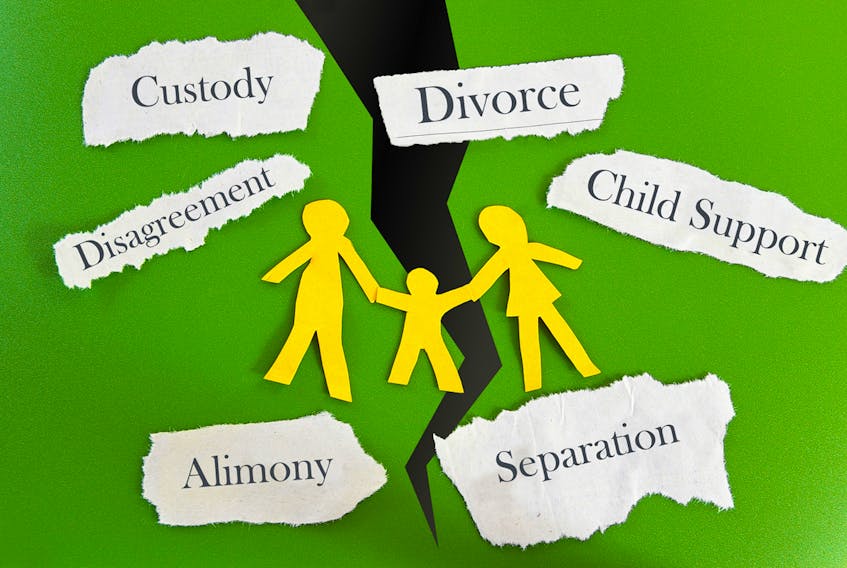You’d be hard pressed to find a corner of this country where someone hasn’t been touched by separation or divorce — whether it’s their own experience, their parents, a family member or friend.
And when children are involved, an already heartbreaking situation becomes even more so. The emotional relationship between two people often shifts to a legal one in which, too often, the kids are caught in the middle.
This week, the federal government introduced legislation aimed at easing the burden experienced by children who — through no fault of their own — find themselves in these unfortunate situations.
Related column:
Russell Wangersky: Let’s hope this bill passes amicably
The feds propose more “child-focused” language: replacing terms like “custody” and “access” with “parenting orders” and “parenting time.”
According to Justice Minister Judy Wilson-Raybould, government wants to move away “from what some have deemed adversarial language where there’s a winner and a loser…”
The changes would also include several factors a court must consider when deciding what would be in the child’s best interest, including their physical, emotional and psychological safety, as well as linguistic, cultural and spiritual heritage.
This would be the first significant update to Canada’s family law legislation in about two decades.
That in itself is a startling fact. The laws were written at a time when what most of us knew as a “traditional” marriage was one between a man and a woman. Today’s legislation needs to reflect all types of modern unions between people of various genders, not to mention the increasingly typical common-law relationships that involve children.
Some have argued that this legislation is equivalent to government suggesting courts and lawyers are ignoring the best interests of children. But many experts say that’s simply not the case. In fact, family law advisers increasingly encourage parents to settle disputes outside the adversarial court system whenever possible.
In reality, this may not be so much a legal issue as a cultural one. A recent Angus Reid Institute survey found that about 56 per cent of Canadians believe marriage is simply not necessary to form a lifelong relationship. Almost the same number said when an unmarried couple has children, it’s not important that the couple get married.
Statistics also show fewer parents who are married at the time they have children go through divorce or separation than do cohabitating parents who opted not to get married after having kids.
We certainly wouldn’t suggest marriage be the norm for every couple who wants to have children — that’s a drastic cultural shift.
What everyone should continue to strive for is a culture of co-operation for the good of the child.
It’s an intangible that can’t be imposed by federal legislation or the legal system, but it’s a mindset we all should adopt.









